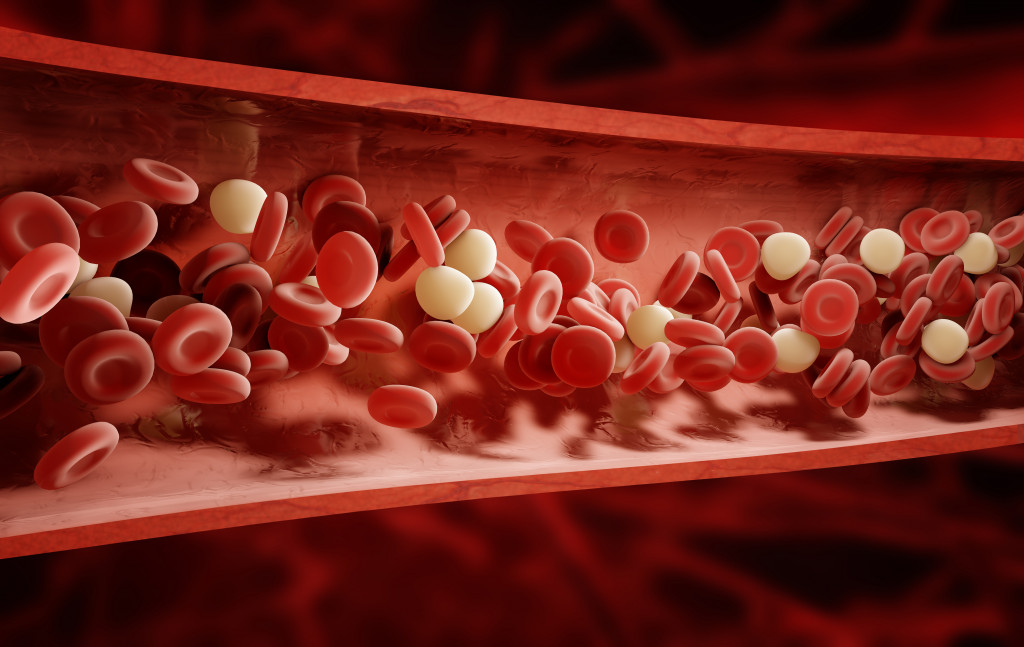The circulatory system is responsible for delivering oxygen and nutrients to the body’s cells and removing carbon dioxide and other waste products. It consists of a network of arteries, veins, and capillaries.
The heart circulates blood through the system by pumping it out of the left ventricle and into the aorta. Then, blood flows from the aorta into smaller and smaller vessels until it reaches the capillaries, where diffusion takes place. The cells absorb oxygen and nutrients, and the carbon dioxide and other wastes are removed. The blood then flows back to the heart, pumped out to the rest of the body.
The circulatory system is one of the most critical body systems, and it works 24/7, non-stop. That’s one of the main reasons it’s one of the systems affected by age and diseases. For example, one of the most common diseases affecting the circulatory system is heart disease, which can sometimes be prevented by leading a healthy lifestyle.
Heart Disease
Heart disease is a severe condition, and many people have gone years without realizing they have it. It is caused by plaque buildup in the arteries, leading to heart attacks or strokes if left untreated. Symptoms of heart disease include chest pain, shortness of breath, dizziness, and fatigue.
If you experience any of these symptoms regularly, it’s essential to speak with your doctor right away to get treated before it’s too late!
Many things can affect the health of our circulatory system. Some factors like genetics, age, and lifestyle choices play a role in whether we develop heart disease or other conditions that affect the proper function of our blood vessels and organs. Fortunately, there are also many things we can do to improve our overall circulatory health.

Eat a healthy, balanced diet
This is one of the best things you can do to keep your heart and other organs healthy. Some foods that are especially beneficial for your circulatory system include fresh fruits and vegetables, lean proteins, whole grains, and nuts and seeds. It’s also important to limit your sugar intake and avoid processed foods as much as possible (as these often contain unhealthy additives that damage blood vessels).
Get regular exercise
Being active regularly is excellent for the health of your circulatory system. Aim for at least 150 minutes of moderate-intensity activity most days of the week to promote better blood flow in your body.
This could include things like walking, jogging, biking, or swimming. Exercise helps keep the heart strong and prevents the formation of plaque in the arteries. It’s also a great way to reduce stress levels and improve overall health!. You can take a brisk walk, go for a bike ride, or enjoy any other form of exercise that gets your heart pumping!
Quit smoking
Smoking is one of the worst things you can do for your circulatory system, as it damages blood vessels and reduces blood flow throughout the body.
Avoiding exposure to secondhand smoke is also important, as this can lead to an increased risk of disease and premature aging of your arteries.
Manage stress levels
Stress is another key factor in circulatory health, as it increases activity in the sympathetic nervous system and causes an increase in blood pressure and heart rate. If you’re feeling stressed out on a regular basis, try methods like deep breathing exercises, meditation, or spending time in nature.
Get a Massage

Massage is a great way to keep your circulatory system healthy and promote better blood flow through the body. It’s also beneficial for reducing stress and improving circulation, which can help prevent conditions like heart disease. You can ask others to give you a massage or even get services for it. However, if you can’t find anyone who can help you out, feel free to buy an electric massager. Some of these massagers even come with special features that can specifically help your circulatory system.
See your doctor regularly for checkups and preventive screenings
Your doctor can help you keep an eye on your circulatory health by performing regular tests such as blood pressure monitoring and cholesterol screening. They can also catch any issues before they become serious, which will make it easier to treat them early on!
Improving your overall circulatory health is not only good for your heart but also helps ensure that all of the organs in your body are functioning properly. By eating a healthy diet, staying active, avoiding smoking and other harmful habits, reducing stress levels, and seeing your doctor regularly for preventive care, you can take steps to protect the health of your blood vessels and organs now and into the future.


